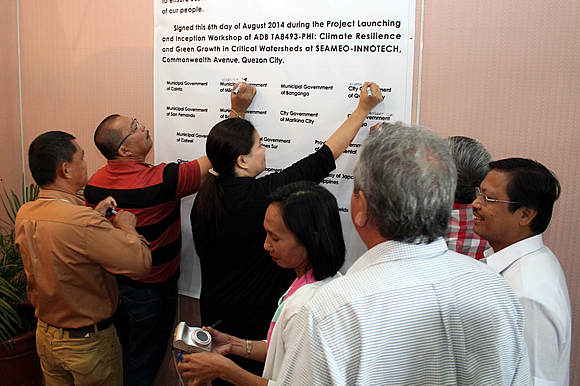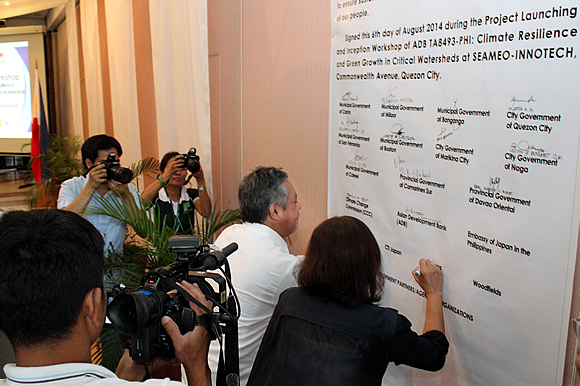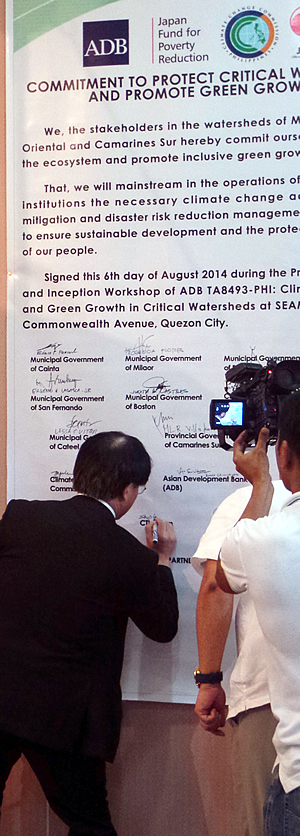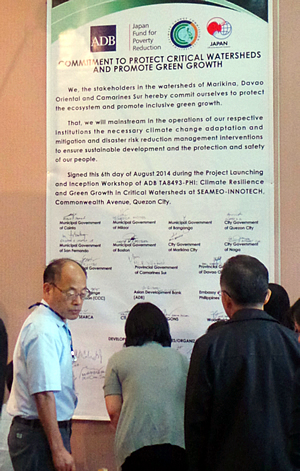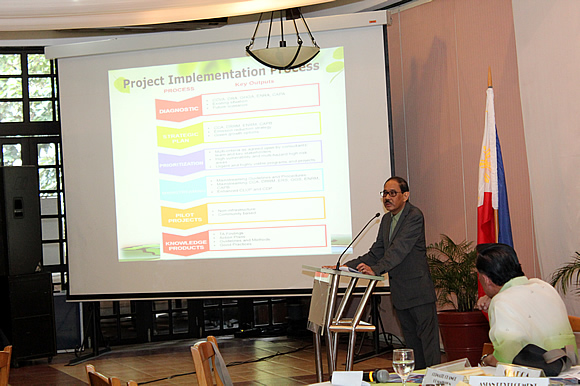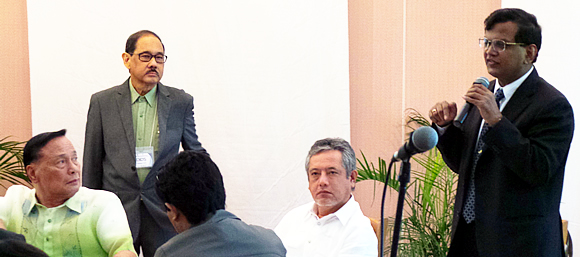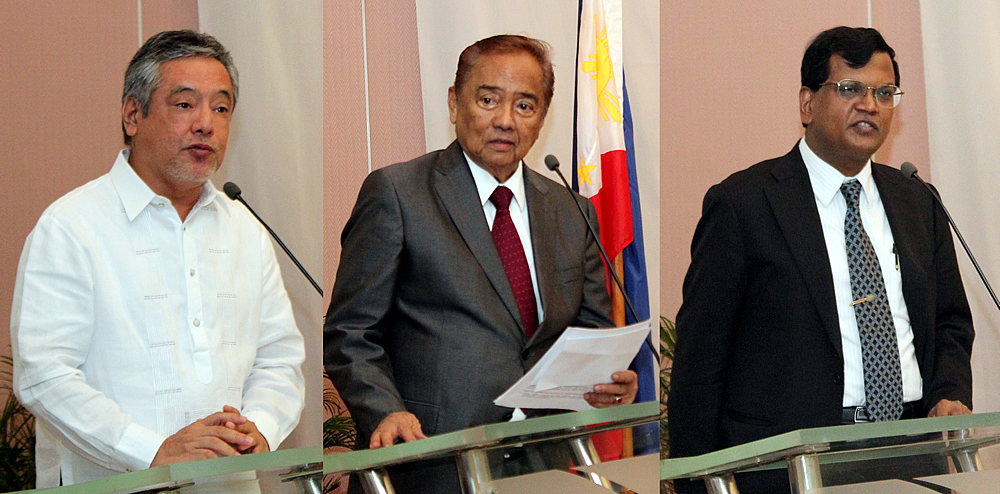The project is funded by the Japan Fund for Poverty Reduction (JFPR) through the Asian Development Bank (ADB) with the Climate Change Commission (CCC) as the implementing agency for the Philippine government. It seeks to demonstrate climate-resilient and green growth options for communities in the watersheds of Lower Marikina, Camarines Sur, and Davao Oriental. Priority is given to these watersheds because they are an important source of water supply for both upstream and downstream communities.
Dr. Ancha Srinivasan, ADB Principal Climate Change Specialist, said that ADB is seriously concerned with the effects of climate change in developing countries, especially the Philippines, and acknowledged the government of Japan for funding the project. He also said the project will be inclusive and participatory with the local government units (LGUs) at the forefront of integrating climate change concerns into the local development plans as well as implementing adaptation and mitigation projects towards green growth.

In his welcome remarks, Dr. Gil C. Saguiguit, Jr., Director of the Southeast Asian Regional Center for Graduate Study and Research in Agriculture (SEARCA), said the new project builds on the gains of SEARCA’s collaboration with CCC and ADB on the project Demonstrating an Eco-town Framework in the Upper Marikina River Basin Protected Landscape.
“We now hope to cascade the lessons and accomplishments of this project to the Lower Marikina area and expand it to Davao Oriental and Camarines Sur,” he said.
The Lower Marikina watershed covers Cainta, Marikina, and Quezon City, while the Camarines Sur watershed comprises Milaor, Naga City, and San Fernando. The Davao Oriental watershed includes Baganga, Boston, and Cateel.
LGUs in the Philippines are tasked as “the frontline agencies in the formulation, planning, and implementation of climate change action plans in their respective areas.” This is consistent with the provisions of the country’s Local Government Code, the Climate Change Strategy Framework, and the National Climate Change Action Plan.
The TA will strengthen the institutional and technical capacity of the LGUs to effectively integrate climate change concerns into their local development plans, which can lead to environmental sustainability, job creation, and long-term economic growth.
The project launch was also venue for the stakeholders in the watersheds of Marikina, Davao Oriental, and Camarines Sur—the LGUs, CCC, ADB, SEARCA, CTI Japan, ERGONS, Woodfields, and other development partners including the media—to join in a ceremonial signing to profess their “Commitment to Protect Critical Watersheds and Promote Green Growth.”
In particular, they committed to “protect the ecosystem and promote inclusive green growth” and to mainstream in the operations of their respective institutions the necessary climate change adaptation and mitigation and disaster risk reduction management interventions to ensure sustainable development and the protection and safety of the people.
“We hope that this participatory and consultative process will give you ownership and a common appreciation of this project as we carry out its activities on the ground,” Dr. Saguiguit told the LGU representatives at the project launch.
The project’s key activities include baseline setting, assessment studies and geographic information systems (GIS) spatial mapping, environment and natural resources accounting, institutional capacity assessment and capacity building, greenhouse gas (GHG) assessment and emission reduction strategic planning, gender mainstreaming, green growth and climate resilience mainstreaming in local spatial and development plans, and knowledge management (including knowledge and technology transfer).
Outputs of the project will include climate change vulnerability of areas, population, physical and natural assets; GHG emission levels and emission reduction strategies and programs; gender responsive climate change adaptation and disaster risk reduction management plan; institutional capacity development plan including hands-on capability building of LGU partner staff; programs and project prioritization; pilot demonstration project per LGU; and knowledge products including geospatial data base, planning guidelines, documented good practices on climate change adaptation, disaster risk reduction and management, green growth and GHG emission reduction.
